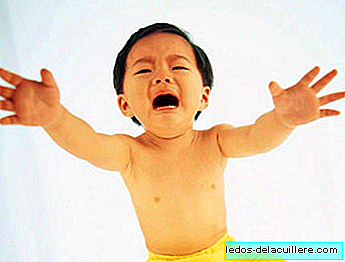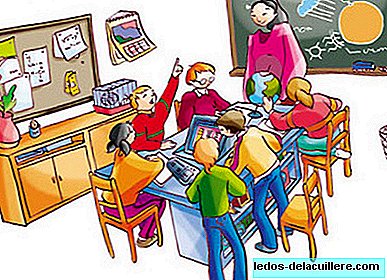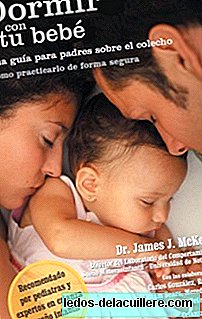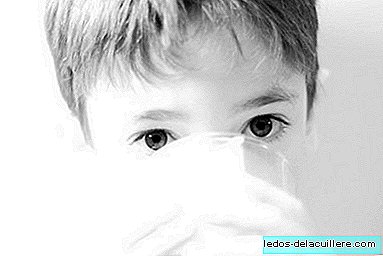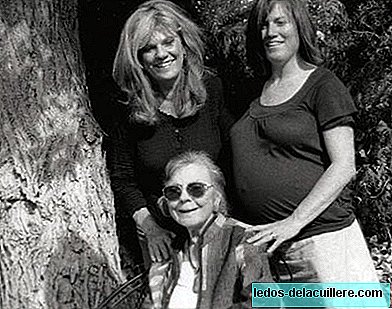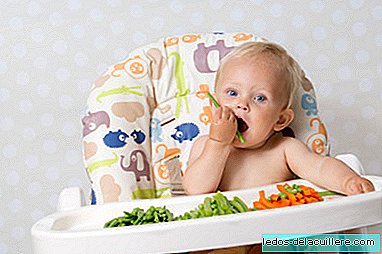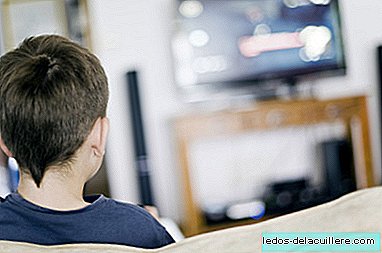
The impact that advertising of food and drinks for children has on the health of our children is a very important issue and that worries us, taking into account the Obesity rates too high and rising in a generation very attached to the screens.
The hours in front of the screen and the publicity that comes to them are determining factors associated with being overweight: the longer, the more extra pounds. Further, television consumption is associated with that of advertising that is inserted in children's programs: Foods and drinks that are sold as healthy and, according to experts, are not at all and cause abusive consumption by children.
Children, vulnerable to publicity
"There is strong evidence of the relationship between consuming television and a higher intake of foods with high energy density and obesity", explains Mireia Montaña, Professor of Information and Communication Sciences Studies at the Oberta University of Catalonia UOC,
"It is proven that brands begin to try to capture consumers at a very young age, with the idea that if they earn them as children, they will have them for life."
The minors, he adds, "They represent a very attractive market, since they are partially responsible for the purchase decisions of their parents in food".
However, José Ramón Ubieto, a collaborating professor in the Studies of Psychology and Educational Sciences of the UOC, believes that:
“Children, especially from the age of seven, are less manipulable than we think. They early distinguish fantasy from reality, since they themselves are the first to create their own fantasies. ”
And explains that "Children under eight do not understand the persuasive intention of advertising messages". Still, it does not deny that
"They are vulnerable because they either arrive as a very early purchase message or by not detecting the eminently mercantilist orientation of the ads they see, they can confuse them with attractive and harmless content."
But what do the studies and the law say about the subject?
Television and the little ones

Although Internet consumption is gaining ground among young people, studies show that television is still king among children, when it comes to consuming audiovisual content.
According to a study by the CNMC (National Commission of Markets and Competition) adolescents aged 12 to 15 years consume a (87.1%) of television, although the time is longer in the smallest. The greatest difficulty in accessing the Internet with respect to television may be key when determining priority consumption in the children's stage. Thus, between the ages of seven and 11, 86.6% watch television while the percentage of those who use the internet is 74.7%.
Between the ages of three and six, 89.4% of children watch TV.According to these data, provided by the parents of the children, 35% of Spanish minors (between 3 and 17 years old) watch between one and five hours a week of television. Almost 22% would consume between six and 10 hours a week.
Y advertising minutes in the sector, according to also the annual report of CNMC, they are even more impressive: from 778,000 in 2003 it has been passed to 1,681,887 in 2017, which shows that the power of television remains very important.
Overweight, very worrying
Mediterranean countries have the highest proportion of obese children in Europe, according to a study that the European Initiative for the Monitoring of Childhood Obesity (COSI) of the World Health Organization (WHO) that has weighed and measured children from six to nine years during the last decade.
The figures reveal that between 18% and 21% of boys suffer from obesity, and between 9% and 19% of girls. In Spain, in particular, and according to the latest study Aladdin, of the Spanish Agency for Consumer Affairs, Food Safety and Nutrition:
The prevalence of obesity in children is 18.1% and overweight already affects 23.2%.Unhealthy Food Advertising
The largest study conducted in Spain on television advertising of food aimed at children, concluded that most products that are advertised as healthy actually have high sugar, fat or other ingredients that make them bad for health.
“In our country, a minor sees on average about 25 advertisements of drinks and food a day and, of all of them, two thirds are not recommended products”, Says Miguel Ángel Royo-Bordonada, a researcher at the National School of Public Health and co-author of the study
The investigation concludes that of the 169 products announced, more than half used nutritional and health claims such as: rich in vitamins and minerals, low in fat, low in salt ... And, in fact, half of those products are unhealthy.
“The products that are most worrying about the frequency with which they are advertised and because they are also very attractive for children are breakfast cereals and dairy products, including low-fat ones,” explains Royo-Bordonada. "Both sin from them, a high sugar content."
Regulation of children's advertising in Spain
He study Remember that there is a Regulation of the Parliament and the European Council of December 2006 on deceptive advertising, with the intention that only healthy foods can be announced with nutritional or health claims, but it is undeveloped.
In Spain, advertising of food and beverages aimed at minors is self-regulated with the PAOS code, for the prevention of childhood obesity. It is the agents of the food chain that are committed to following the rules of said code to achieve healthy living habits, but it does not seem to be being applied.
Education to foster your critical spirit
For Professor Mireia Montaña, the key to nullifying the effects of advertising on our children begins with ourselves, the parents.
According to the expert, we must do that:
"Children wonder if the information they receive is true, since we usually stay with the big flashy headlines and we delve little into them. In order for them to become responsible adults we must be ourselves first and educate them in the example. "
Why not take them with us to the purchase and show them the content of the items they like? Asking them to help us fill the basket with healthy foods can be a good start.
Photos | iStock
In Babies and More | A study shows that pressuring children to eat certain foods is useless, but there are other things you can do, How to combat childhood obesity in Amsterdam: Yes!


